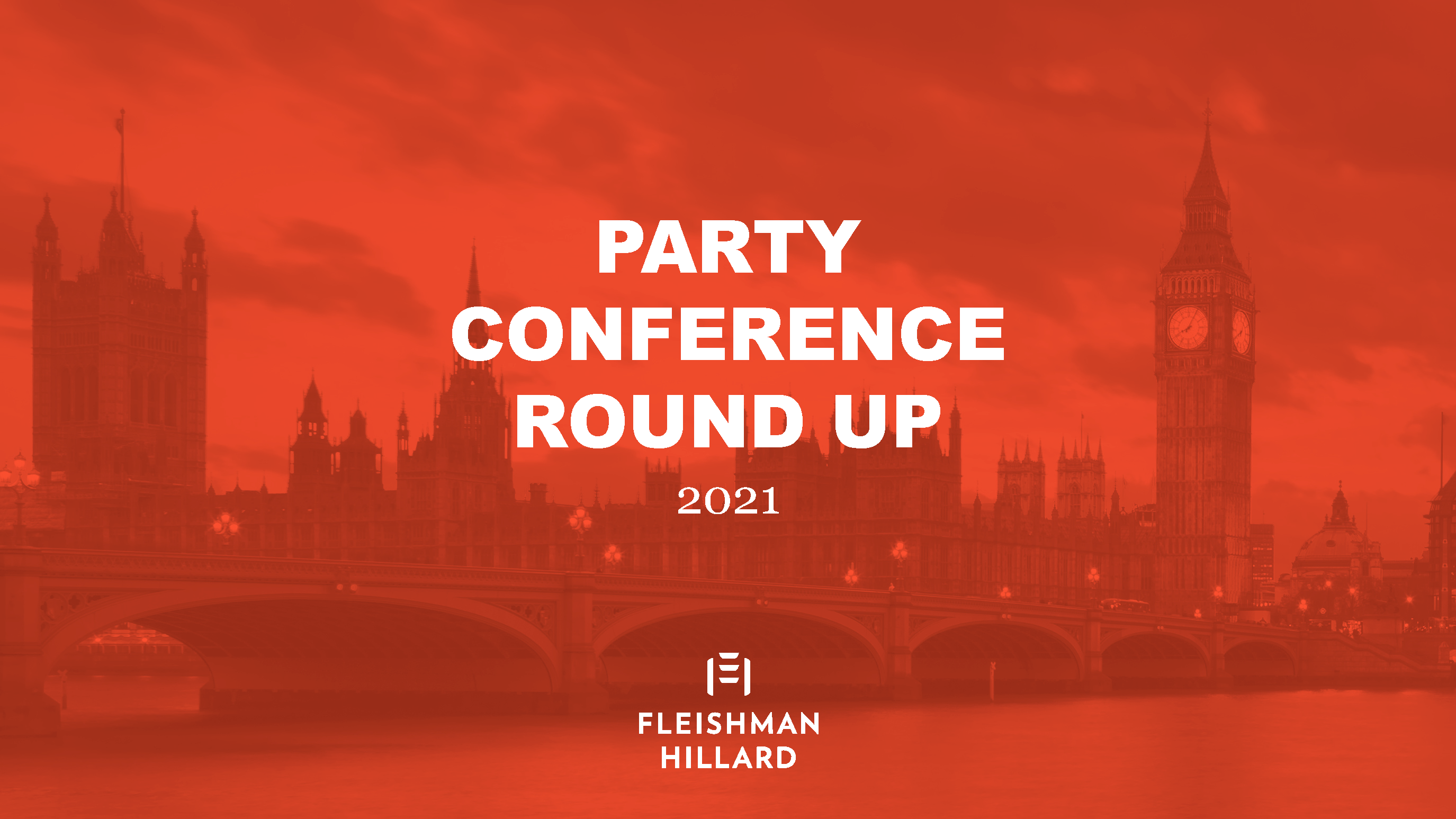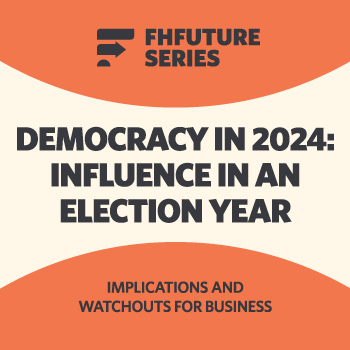Labour Conference 2021 Round-up: Five things we learned
Labour Conference 2021: Starmer slays the Corbyn dragon, but will he now resonate with the public?
 Four days of Labour Conference is quite enough Conference for most.
Four days of Labour Conference is quite enough Conference for most.
However, I hugely enjoyed being back amongst party members, MPs, peers and the wider business community for the first in-person Labour Conference since 2019.
It’s safe to say that Brighton 2021 was a mixed bag for the party, but there are clear signs that Labour is now once again deadly serious about power after four election defeats in a row.
Arsenal-loving Keir Starmer’s first Leader’s speech to the party faithful was almost as long as a football match, totalling 89 minutes.
Starmer came into the Conference spotting the first real opportunity to look out to the country after eighteen months in the role; to set out why he is in politics, the type of leader he yearns to be, and crucially, what Labour stands for following the Corbyn years.
He will no doubt be pleased with the way the speech went; a host of new policies were announced, whilst he calmly and clinically faced down Corbynista delegates who repeatedly heckled him from the Conference floor. It was a commanding and compassionate performance from a serious and decent man.
Here are five things I learned from four days in a sometimes sunny, but always windy, Brighton.
-
Keir Starmer seeks to connect with the electorate through values rather than policy demands
Starmer, unlike his predecessors who at Conference tended to focus on their policy offer to the country, set out his stall for why he should be Prime Minister through the communication of his values.
He opted to focus on the themes of work, care, family and security, offering a highly personal account of his family’s story, and he no doubt believes that in contrast to the Prime Minister’s style, compassionate values are the mechanism through which he will connect with voters.
However, voters may struggle to grasp what values mean in the context of Labour’s programme for Government, and it remains to be seen whether a winning coalition can be assembled based on perceptions of competence and decency alone.
Being the good guy is unlikely to be enough to take Labour back to Number 10, and voters will want to know more about the big-ticket policy demands that Labour will put forward to build that all-to elusive alliance, particularly on the cost of living and national investment decisions.
Yet, the public have seen and heard from Starmer at last, and now know a little more of what he’s about.
-
Climate policy is confirmed as the new frontier of social democracy
One area that Labour has successfully communicated on is its agenda on the climate crisis.
Labour’s £28 billion climate investment pledge for the first 10 years of a Labour Government marks a major intervention from the Shadow Chancellor, and will challenge voters to consider Labour’s arguments ahead of COP26, who will compare them with the Prime Minister’s net-zero agenda.
It was notable, however, that the £28 billion was not broken down into priority areas or initiatives, though this will give Starmer breathing space in Government to make progress flexibly on his Green New Deal.
Social democratic parties across Europe are increasingly citing the climate crisis as the basis on which to transform the economy and work, opening a new and distinctive frontier on which to campaign.
Starmer has spotted the opportunity. We can expect further details to emerge in the build-up to the Spending Review and Autumn Statement, where Labour will have to show their hand.
-
The hard left is in retreat but will remain a thorn in his side
Supporters of Jeremy Corbyn will be reeling after a difficult few days for the party’s left.
Starmer, with the backing of the major unions, has managed to change Labour rules around how leaders are nominated and elected, whilst the trigger ballot clause pressed forward by Corbyn has been scrapped, entrenching the positions of the party’s so-called moderate MPs in their constituencies and in Parliament.
Heckles from the Conference floor will hardly assuage concerns amongst the public that Labour is divided and inward-looking, and the Corbyn faction is not simply going to go away.
They will continue to cause Starmer issues at Conferences of the future, but Starmer will calculate that taking on the faction will play well with voters repelled by a project that was resoundingly defeated by the Tories in 2019.
-
Leadership rivals in the party remain vocal
Perhaps more worryingly for Starmer, vocal and influential rivals remain at the forefront of the national agenda. Greater Manchester Mayor, Andy Burnham, was active in Brighton, popping up across the secure zone to criticise the policy framework put forward by Starmer on social care and levelling up.
Angela Rayner, Starmer’s deputy, meanwhile made a splash by calling Tory Cabinet Ministers “scum” on the eve of Conference. Rayner’s intervention will be seen as a gaffe, but her straight talking ambition, endearing to many, means that she will be there waiting if Starmer trips up.
However, Starmer’s well-received speech means that he is more secure than he has been in months.
-
Labour is serious about winning once again
Perhaps the most striking part of Starmer’s speech was the affirmation that Labour is once again a party of Government.
After years of weak opposition that saw unorthodox political leadership give power to members to dictate policies that were out of step with public opinion, Labour is back in the political mainstream.
The obsession with niche issues has been replaced with a serious and competent leadership that seeks to position the party as a fiscally responsible, deeply compassionate and crucially, a sensible alternative to the Corbyn era, and indeed the Conservatives.
The Blair playbook has emerged as significant once again, and Starmer’s agenda will now be overwhelmingly focussed on the next election.
Whether he can turn it around in time remains to be seen, but Keir and his team would certainly have raised a glass last night.
Luke Downham, account manager
Find Out More
-
Democracy in 2024: Influence in an election year
May 2, 2024
-
Platinum CMS Award
March 13, 2024



